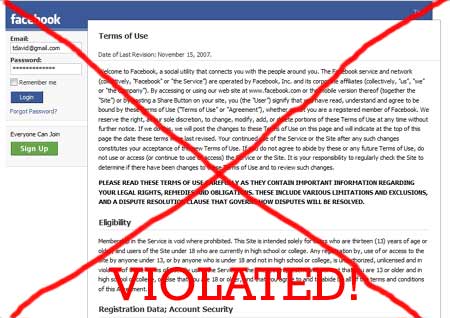This post illustrates that even countries with legal traditions very different from that of the United States can teach Americans something about values. In France, criminal investigations follow the “j’accuse” model, under the Code pénal, where a single judge — known as the Juge d’Instruction — controls investigation and charging of suspects, and under which a defendant’s silence can be held against him and the burden of proof is far less than the “beyond a reasonable doubt” standard required here. France has also taken a rather different approach to civil law on the Internet, for instance holding Yahoo! liable for anti-semitic postings by users.
But these differences also go in another direction. Several weeks ago the French Assembly passed a measure, known as the “three strikes” law, that required ISPs to terminate Internet access for users found to have downloaded copyrighted materials at least three times. That law has now been set aside as unconstitutional (yes, France actually has a constitution!) by the French courts.
The French Constitutional Council ruled Wednesday that the law’s reliance on the government committee to make decisions on when to cut off people’s Internet access made it incompatible with the French Constitution. Since the “Internet is an element of freedom of speech and the right to consume,” only a judge has the power to deprive someone of it, according to the decision.
As a result, the law will be enacted without the “third-strike” of cutting off Internet access. Instead the government agency only will be permitted to send out mail and email warnings to suspected pirates. If it wants to further sanction an alleged illegal downloader, it will have to go to court.
Sarkozy’s Web-Piracy Fight Dealt Blow [WSJ.com].
While the decision rests ultimately on what we in the U.S. would term separation-of-powers, namely the relationship among different branches of government, it also introduces a concept completely alien to the American legal system. Although the Declaration of Independence starts with several self-evident truths, “liberty” and the First Amendment have never been interpreted to protect a “fundamental right” to communicate via the Internet, let alone break copyright laws. So in the U.S., a government agency can access one’s Internet usage from an ISP without a warrant (and sometimes without a subpoena) and a subscriber’s relationship with his or her ISP is a creature of private contract, not statutory, let alone constitutional, protection.
I am not suggesting that America adopt any or all of the French code-based legal system. What I believe this shows, however, is that even cultures which most Americans would regard as less concerned with the basic freedoms of its citizens — Americans would never stand for a system under which prosecutor and judge were combined in a single agency, judge or other government official — can teach us something about the values underlying the legal relationship of people to their government. Here in America we are blessed with constitutional rights. But basic human needs, like housing, jobs and medical care, are not a legal right. Internet access is very important to success in today’s economy, and I for one suggest that perhaps a debate on whether relegating that issue to the private, unilateral terms of service (ToS) of ISPs and Web site operators is a paradigm that is unlikely to be successful in the long term.
Goodbye “freedom fries.” You Frenchies aren’t so bad after all.

